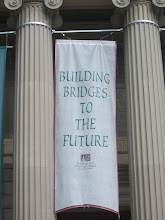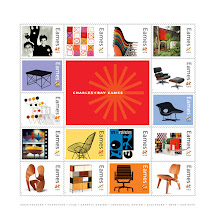Com enorme facilidade temos ao nosso dispôr as mais variadas ferramentas, gadgets, instrumentos, acessórios, periféricos, para aceder e tratar a informação
Por esta razão este tem necessariamente de ser um período rico e incomparavelmente fértil em termos de desenvolvimento e de progresso.

O Kindle é um exemplo vivo desta realidade. A informação à distância de um qlick, milhares de livros ao alcance de uma lista, jornais de todo o mundo, uma verdadeira biblioteca em tempo real e em qualquer lugar. Foi desenvolvido pela Amazoon e constitui um sucesso de vendas que vem revolucionar os livros e a leitura, a logística e o transporte, o correio e as comunicações. Nada será como até aqui, a nossa relação com a informação, a forma como lidamos com revistas, jornais e livros vai mudar e é importante que tenhamos consciência disto.
Partilho a experiência descrita pelo Professor Marty Linsky que de forma ilucidativa descreve o impacto que esta ferramenta teve no seu dia a dia:
“Max and Meredith's generation is already getting most of their reading done online and I, like many of my generation, could not imagine not having the crinkle of a newspaper in my hands.....until I got my Kindle, that is.
Now, we have bookshelves in almost every room of our house. Most are overflowing. I love to read, to curl up with a book before going to bed, to plow through the carton of books I take with me on vacation, or to sit with on a lazy Sunday in our apartment or in Central Park reading and sharing the mood and the space.
The Kindle has changed my life. I never thought I could live without turning the pages. I can. I never thought I could live without sticking Post-its on pages, or making notes to myself on the inside cover. I can. I never thought I could live without the satisfaction of turning that last page in a book. This too, I can. It is the size and weight of a typical paperback. It can hold 1500 books. And I could get magazines and newspapers, including the New York Times, delivered to the device as well. (No, I haven't yet succumbed to reading the Times on my Kindle.)
It is less and less likely that I will ever buy another book in the traditional format. I will certainly buy a lot less of them than I have done in the past. Now, I buy the book I want on Amazon (from the 250,000 that are available) at the computer in my home office and by the time I walk across the hall to me bedroom where the Kindle is plugged in, the book is already downloaded. At $9.99, or less.
The Kindle is not perfect. But it is close. And the Kindle 2 is even closer, at least according to the New York Times guru on personal technology, David Pogue.
Since 2006, Sony has its own device, the Sony Reader. Sony has also just created a strategic alliance with Google to meet the Kindle challenge. Google has finally worked out an agreement with authors and publishers to provide access to its huge digitized inventory on line, although Microsoft and others are trying to get in the way of the agreement every being implemented. The war for our virtual book, magazine and newspaper business is in full swing.
Google "newspaper closes". You'll get 3.8 million hits. Two weeks ago, it was one of my old favourites, the Seattle Post-Intelligencer, that went web-only. And the New York Times reported this weekend that it has threatened the union with closing the Boston Globe where both my wife and I were gainfully employed some time ago.
As a former newspaper journalist I am not one to mourn the loss of newspapers. I have more information, more good information, at my fingertips than I ever did before. Slowly, I am getting comfortable with getting information virtually, spurred on by friends, family and colleagues for whom this is second nature. It is Reset, and it is happening right before my eyes”.












































































Sem comentários:
Enviar um comentário